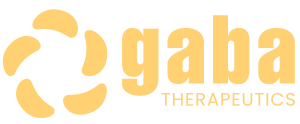DRUGS: $15.5M; XANAX IMPROVEMENT?
Biotech with Anxiety Drug Lands Funding
An effort to develop a new and improved version of an anti-anxiety drug—never commercialized in the U.S.—is underway in Newport Beach.
Gaba Therapeutics Inc. has developed and patented a modified version of Etifoxine, an anti-anxiety drug developed decades ago that is approved and sold off-patent in more than 25 countries, but not domestically.
Chief Executive Ian Massey said the company expects its version of the drug to “have the efficacy of Xanax for anxiety, without the side effects, which are typically sedation, tolerance and dependence.”
The company, currently based in the 5000 Birch office complex near John Wayne Airport, predicts it will take about seven years before it hits the market, according to Chief Financial Officer Richard Farrell.
In the meantime, Farrell said an initial public offering isn’t out of the question for the company, which regulatory filings show having raised $15.5 million in funding late last year.
Massey has worked with several firms in the pharmaceutical industry, most recently in the Bay Area. Co-founder Farrell and several others with the early-stage company counts local ties (see story, this page).
Faster, Lower Dosage
Massey said the Gaba team is optimistic about its success with its drug candidate because it’s not starting from scratch.
The only difference between Etifoxine and Gaba’s new medication, GRX-917, according to Gaba: The company’s deuterated version is more stable at the molecular level than Etifoxine, meaning that it metabolizes in the body faster, and therefore requires a lower dosage or less frequent dosing.
“Because we’re developing a deuterated version of an on-market drug, the probability of success for the chemical entity is much higher than a conventional, new clinical entity,” added Massey.
Deuterated drugs have their molecular composition modified, so that hydrogen is replaced with a heavier isotope called deuterium. In general principle this means they break down more slowly in patients, so that a lower dose can be used to greater effect.
Past to Present
Etifoxine was never commercialized in the U.S. or broader European markets because it was considered a relatively mild benzodiazepine (a type of psychoactive drug, like Xanax) compared to others.
It wasn’t until the 2000s that French scientists made two discoveries: the drug is not a benzodiazepine, and it increases levels of natural neurosteroids, which can lead to reduced anxiety, stress and depression.
These discoveries led a small number of companies to continue to manufacture and distribute the drug off-patent, but there was no incentive for large-scale commercialization.
New and Improved
Anxiety disorders affect 40 million adults in the U.S. every year. The state of the anxiety medication market, in addition to what the company already knows about Etifoxine, bodes well for its future.
“Therapies that are currently available are very lacking,” Massey said.
SSRI/SNRI medications—two popular classes of medications often used for the treatment of depression—typically take four to six weeks to take effect and are not effective in 50% of patients.
Benzodiazepines, meanwhile, have severe and potentially fatal side effects.
Benzodiazepines account for 31% of U.S. fatal prescription overdoses, according to the National Institute of Mental Health.
A 10-year study in France that analyzed 14 million prescriptions of Etifoxine revealed that 21 in one million patients had adverse drug effects and no cases showed abuse or pharma codependency, one reason it wasn’t correct to classify it as a benzodiazepine.
GRX-917 shares these qualities but takes effect at a faster rate, according to Gaba officials.
$15.5M to IPO
Gaba’s executive team formed last August and raised a $15.5 million Series A round from Atai Life Sciences last October.
The German-based investment firm Atai is building a portfolio of biotech companies to create therapeutics for mental health and has raised about $67 million in funding in less than two years.
Efforts are currently underway to kick off Phase I clinical trials on Etifoxine to understand its neurosteroid concentration. The trial’s taking place in Australia. The country allows dosing in humans pre-investigational new drug (IND), expediting the testing. The company will also benefit from the 43.5% tax rebate on eligible clinical costs by conducting the trials there. CEO Massey said the company would likely continue trials in Australia until Phase III trials, which would be done in the U.S.
Gaba plans to use some of its recent investment in preparation to launch Phase I clinical trials on GRX-917 in Australia in the first quarter of 2021.
As for what’s next, “we’re moving to the capital markets for our next round,” said Farrell, a native of Australia.
“We plan to IPO within the next 24 months.”
